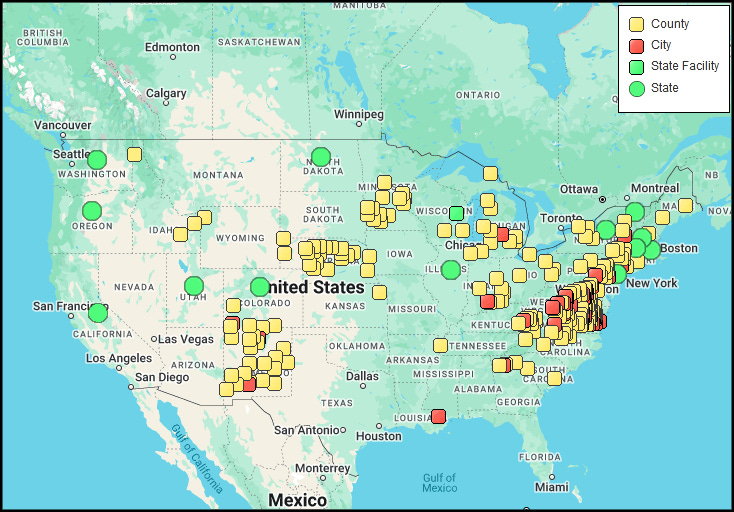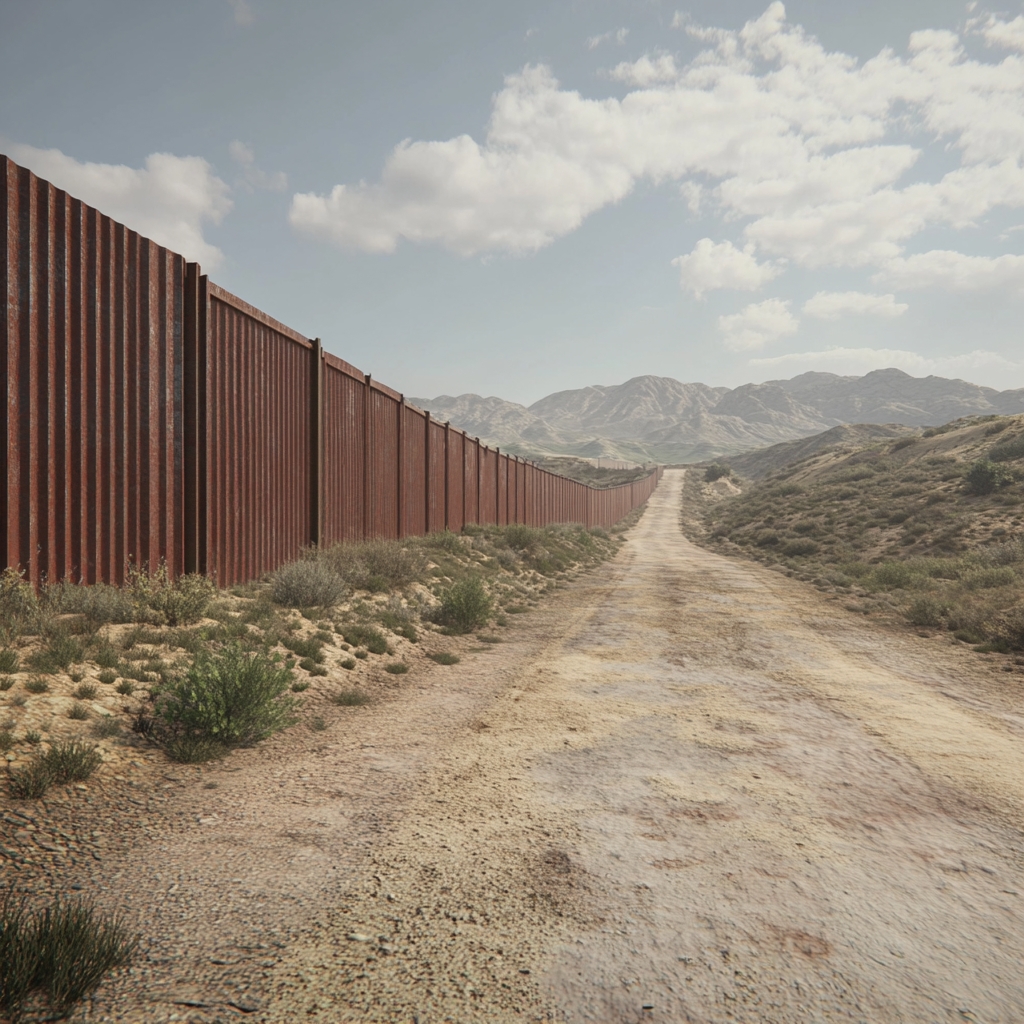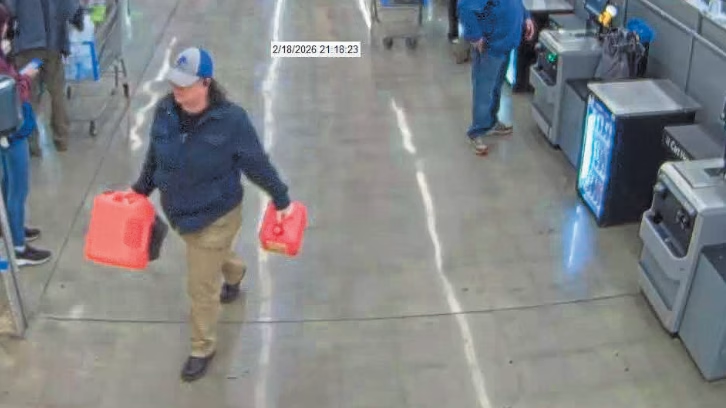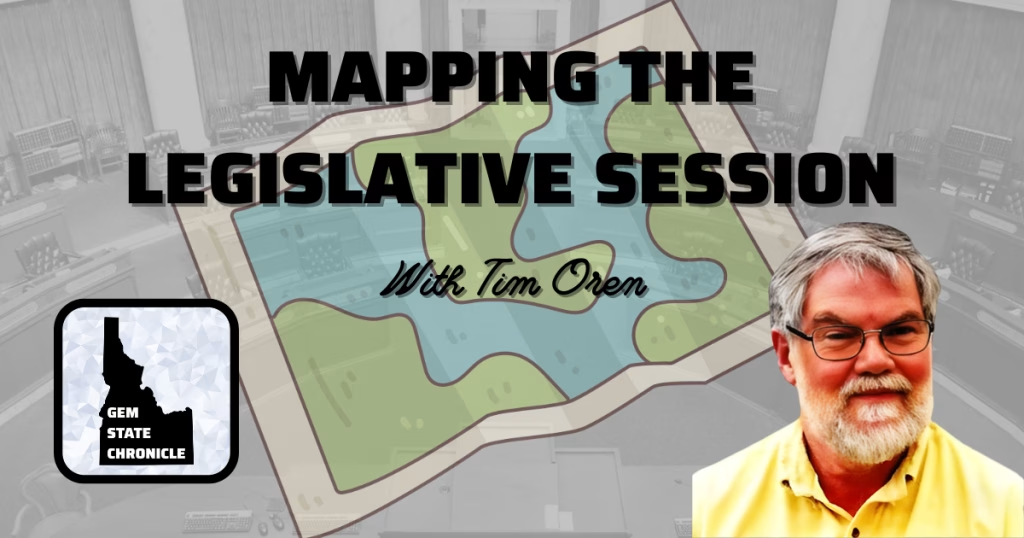Yesterday, the Center for Immigration Studies (CIS) updated its map of jurisdictions that limit or oppose cooperation with Immigration and Customs Enforcement. Appearing in that update were three Idaho counties: Bonneville, Kootenai, and Power.
Brian Lenney, state senator for district 13, tweeted an article from Breitbart this morning saying that President Joe Biden was ignoring Idaho state law by dumping illegal aliens into those three counties. Former solicitor general Theo Wold tweeted about it as well, asking why local authorities in the three counties were undermining federal and state law.
CIS updated its map based upon a monthly report from Immigration and Customs Enforcement (ICE) that it received via Freedom of Information Act (FOIA) request. The document lists Kootenai County as not accepting immigration detainers, while Bonneville and Power Counties are listed as accepting Immigration detainers in a limited fashion.
What is an immigration detainer?
I spoke to a retired immigration agent who explained how the process works. John Moore served in the Border Patrol for 13 years and then worked with ICE after that, rising to chief of staff for the El Paso sector. He helped enforce immigration law for many years. He explained that jails either have an ICE agent onsite or have specially trained staff to evaluate the immigration status of incoming inmates.
If the agent or staff member has cause to believe an inmate is in this country illegally, he or she sends a form to ICE called I-247. ICE then responds, asking the jail to either hold the inmate for up to 48 hours longer than it otherwise would and to notify them of the inmate’s pending release. ICE pays the jail to house these illegal aliens that are pending pickup and deportation.
Of course, deportations do not usually happen quickly. Our immigration system guarantees due process, even for people here illegally. Many criminal aliens are given notice to appear in court, sometimes years down the line, and then released back into society. Moore said that the vast majority never appear.
Kootenai County has an agreement with ICE to hold illegal aliens from eastern Washington who are already in the system, but they too are likely released with a notice to appear that could be years down the line.
According to Moore, illegal aliens arrested for a specific category of crimes known as crimes involving moral turpitude will be deported much quicker. This document from the Immigrant Legal Resource Center explains that process in detail.
The ICE report published by CIS lists the Kootenai County Jail as an institution that does “not currently continue custody per the Form I-247A and/or provide adequate notification in order to arrange the orderly transfer of noncitizens to ERO custody.”
(ERO is Enforcement and Removal Operations, the division within ICE that handles deportations.)
Bonneville and Power County Jails are listed as institutions that give ICE notification prior to releasing suspected criminal aliens, but do not hold them long enough for agents to take them into custody.
This determination was made by ICE itself, not CIS or any other third party organization.
According to the CIS map, the states of Washington, Oregon, and California do not cooperate with ICE, and neither do Utah, Colorado, and North Dakota. The three counties in Idaho are listed as non-cooperative, as well as one county in Wyoming. On the other hand, Montana, Nevada, and Arizona do not show any non-cooperative facilities.

In 2023, the Legislature passed Senate Bill 1030 which prohibits government entities from refusing to enforce federal immigration law. This was meant to ensure that no Idaho jurisdictions could establish themselves as so-called “sanctuary cities” and protect illegal aliens from deportation. The vote on S1030 was party line, with every Democrat voting in opposition.
Does being listed on this ICE report mean that Bonneville, Kootenai, and Power Counties are violating both state and federal law?
Not so fast, according to Kootenai County Sheriff Bob Norris. In a press release issued Thursday afternoon, the sheriff’s office flatly denied the accusation that Kootenai County is a “sanctuary county”:
It was brought to our attention that Kootenai County was identified as a sanctuary county in recent publications. This is completely false! The Kootenai County Sheriff’s Office has an excellent working relationship with U.S. Immigration and Custom Enforcement (ICE) to remove criminal aliens from our county. All illegal aliens are held within our jail until ICE can arrange further processing and transportation to one of their facilities. The Kootenai County Sheriff’s Office temporarily houses illegal aliens from throughout the Pacific Northwest for ICE.
Sheriff Robert “Bob” Norris has been very clear on his stance on illegal immigration by the following:
- He has opposed and opposes any bill in the Idaho Legislature that would provide driver’s licenses to illegal aliens.
- He has testified in Idaho legislative hearings to strengthen laws on illegal aliens in Idaho.
- He has confirmed that no ICE petition for a criminal alien has been denied.
A local representative of Department of Homeland Security stated Kootenai County is not on the official publication as a sanctuary county. DHS also noted that the link is to a non-governmental website.
As long as Sheriff Norris is Sheriff of Kootenai County, the county will not be a sanctuary or haven for illegal immigration.
So what is the truth? The report from ICE lists Kootenai County as not cooperating with detainer requests, while the sheriff says that no ICE petitions have been denied. The Chronicle reached out to the Kootenai County Sheriff’s Office with additional questions, but they have not responded as of Thursday afternoon. We also reached out to the Bonneville and Power County sheriffs, and have not heard back from them either.
A source in Bonneville County indicates that neither the sheriff nor the commissioners are aware of why they were listed on the ICE report. Stay tuned for more information in the coming days.
Illegal immigration is a growing concern in Idaho and the nation. Many polls show it as the top issue going into the November election. Last January, Sheriff Bob Norris hosted a town hall meeting to discuss immigration and fentanyl. According to an article by the CDA Press, Norris indicated that concerns about illegal immigration were overblown. “We haven’t seen the criminal element of illegal immigration,” Norris said at one point. He also said that it would be unconstitutional to ask people who haven’t committed a crime in the county for their immigration status.
Norris said he believes local concerns about immigration can be exacerbated by national media reports and social media content about immigration in other parts of the country.
The following month, Norris joined Prosecutor Stan Mortensen and US Border Patrol chief Lloyd Easterling at another town hall meeting. According to the CDA Press, Easterling explained that limited resources meant they had to prioritize going after criminal aliens — those who commit crimes on top of being in the country illegally. The only way to enforce immigration law against criminal aliens is for local law enforcement to cooperate with ICE and other federal agencies in facilitating the deportation of aliens who end up in Idaho’s criminal justice system.
Sheriff Norris is currently in a contentious reelection campaign against three independents: Justin Nagel, Kyle Woodward, and Dan Wilson. The publication of this ICE document has raised questions on both sides of this race. Some opponents of the incumbent claim it shows that the incumbent is not working to protect the citizens of Kootenai County, while some of his defenders question the timing, wondering if this was released as part of a disinformation campaign.
Illegal immigration remains a complex issue in Idaho. Many of those involved with law enforcement find their hands tied with regards to what citizens want to see done. We all know there is a problem in our state and our country with illegal aliens, but what is the specific process for dealing with it? Law enforcement agencies, including ICE itself, have to deal with finite resources, and so they must set priorities.
Yet we all know in our hearts that this is a problem that cannot be left unresolved forever. We all know stories of people whose lives were impacted or even lost because of illegal immigration, of drunk drivers without insurance or IDs hurting or killing people on the road and being let off Scot free, of big corporations who facilitate illegal migration for cheap labor. We need to solve this problem now, rather than continuing to kick the can down the road.
Rep. Jaron Crane introduced House Bill 753 late last session which would make it a crime for illegal aliens to come into Idaho. It would not have created roving gangs of enforcers going door to door asking for papers, like opponents claimed, rather it would have given law enforcement more tools to ensure that criminal aliens would be deported rather than released back into society. H753 passed the House, but was not taken up in Senate State Affairs. Ask your legislators to make this a priority in 2025. We cannot allow this lawless and dangerous situation to continue unabated.
Paid subscribers visit Substack for a bonus note. Not subscribed? Subscribe for free to get daily posts in your email while paid subscribers support my work and get all sorts of bonuses (and the ability to comment at Substack).
About Brian Almon
Brian Almon is the Editor of the Gem State Chronicle. He also serves as Chairman of the District 14 Republican Party and is a trustee of the Eagle Public Library Board. He lives with his wife and five children in Eagle.













